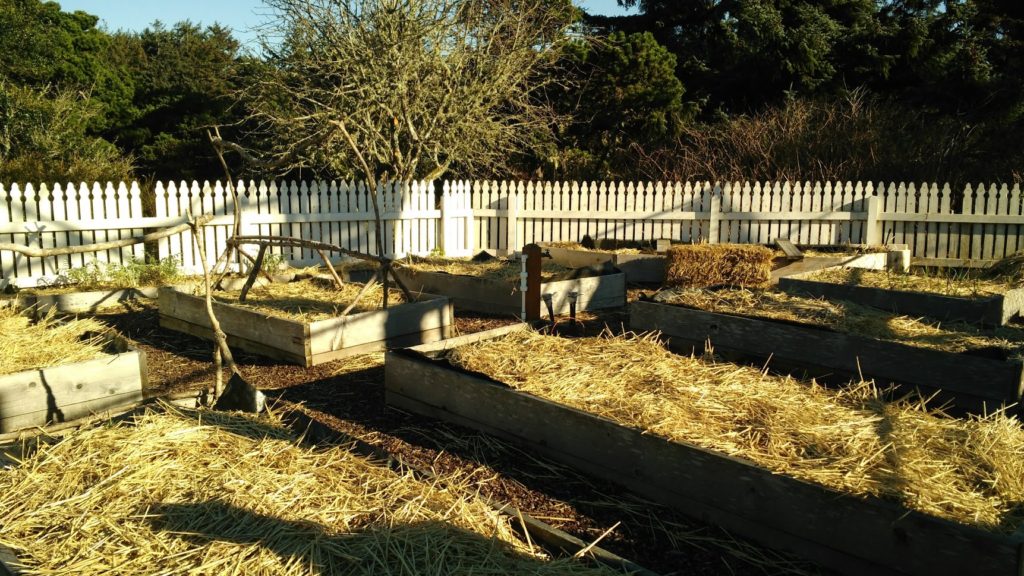Winterizing your Gardens
- 2018-11-05
- By Drew Walters
- Posted in Agriculture, Horticulture
Making sure that you prepare your garden for the winter months is equally as important as the planning, preparation, and planting that you do earlier in the season. Autumn is the perfect season to not only put your garden to rest, but also to reflect on the growing season, come up with ways to improve in the following year, and give yourself a pat on the back for your successes.
“Winterizing” your garden is the practice of protecting your garden beds (and plants within them) through winter, rejuvenating soil nutrients that were depleted during the growing season, preserving seeds that you are hoping to re-use, and eliminating any diseased plant material to prevent it from continuing to cause problems in the following season.
Checklist for winterizing your garden:
- Cut perennials back (leaving short stalks that are only 2-4 inches from the soil surface).
- Sensitive plants should be protected through the winter (from the cold, wind, and vertebrate pests). Some plant wraps can be used to protect younger perennials from hungry deer and/or rabbits as they search for food in the winter. It is important to remove these wraps when temperatures begin to warm in the spring- because they can restrict plant growth and cause additional problems.
- Remove annuals from the garden after they have completed blooming. Annuals will not re-bloom the following year.
- Make sure any diseased plant material is removed and destroyed. (Composting diseased plant material can keep the microbes alive, which could re-introduce them to your garden in the following growing season).
- Add organic matter to restore the nutrients within the soil (you can use compost, manure, leaves/straw, and certain mulch types).
- Root crops can remain in your gardens longer, but they need to be protected from freezing temperatures and frost damage. Using mulches like straw and leaves can keep the soil at more consistent temperatures through the colder months.
- Make sure that you have drained / “blown out” your irrigation system- to avoid any damage due to freezing/thawing.
- Don’t forget to water your plants throughout the winter (you may need to hand-water, to avoid damaging your irrigation system). Colorado winters can be very dry, and additional moisture is often needed to sustain plants. (Winter watering should take place earlier in the day, and when temperatures are above freezing).
Once you have completed these tasks, you can sit back, relax, and plan for another successful year of gardening!

Straw mulch on raised garden beds can help with retaining soil moisture, stabilizing soil temperatures, and adding organic matter as the straw decomposes. (Photo: Abi Saeed)
Learn more about gardening and winterizing your gardens here:
http://extension.colostate.edu/docs/pubs/garden/07402.pdf
http://extension.colostate.edu/docs/pubs/garden/07211.pdf
If you have any questions about gardening, winterizing, or troubleshooting garden problems, you can submit a question to a team of extension experts nationwide: on Ask an Expert: (http://ask.extension.org).
Please visit our new GarCo Extension Website and Blog!
URL: https://garcogardening.weebly.com/

